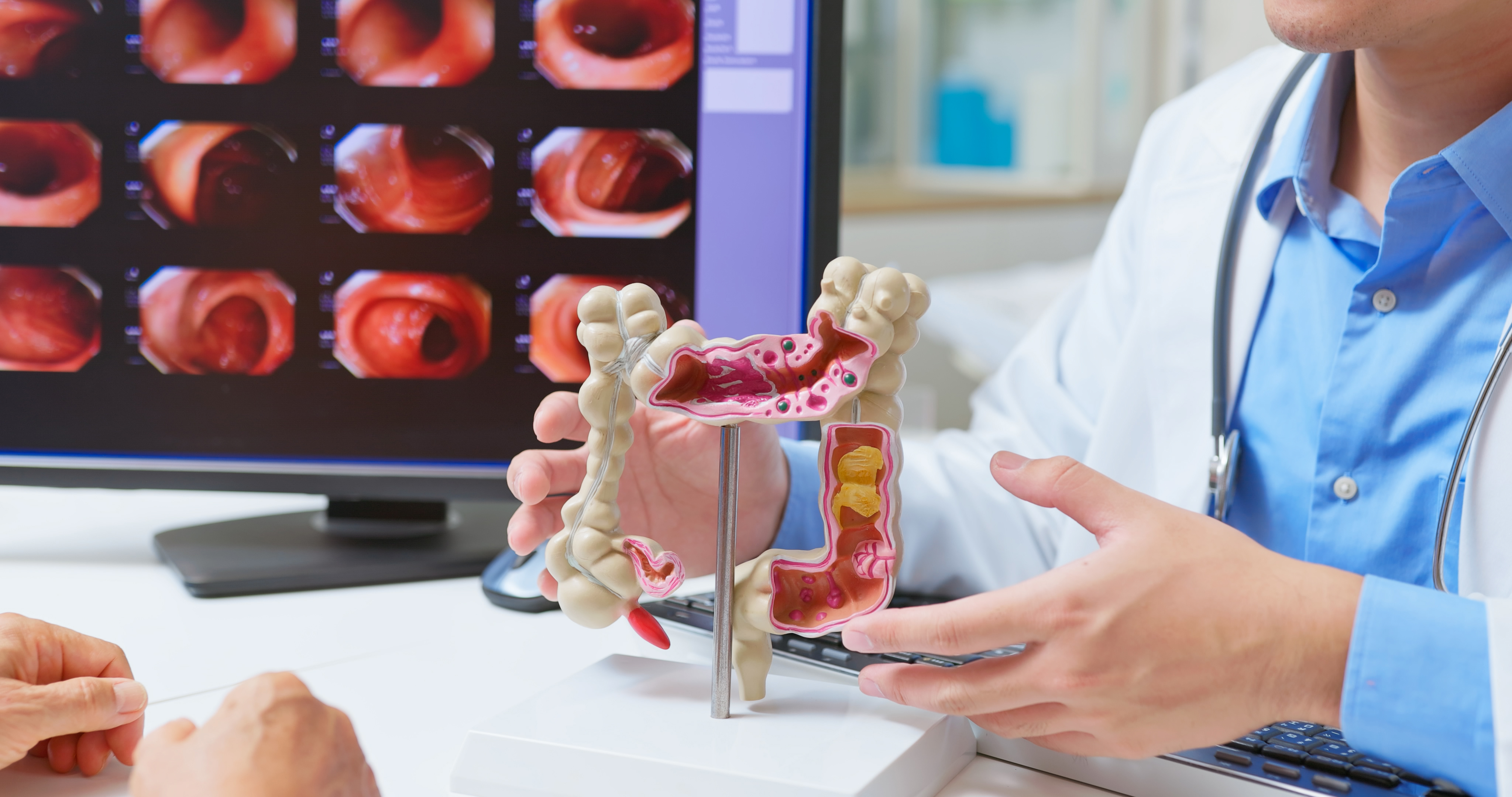Colon and rectal cancers are two of the most frequently diagnosed. The lifetime risk of developing colon and rectal cancer is about 1 in 24 for men and 1 in 26 for women.
Symptoms
Early stages may not present noticeable symptoms; however, as the disease progresses, individuals may experience:
- Changes in bowel habits
- Blood in the stool
- Unexplained weight loss
- Fatigue
- Abdominal discomfort
Risk Factors
Several risk factors that might increase a person’s chance of developing colon or rectal cancer include:
- Being overweight or obese
- Having uncontrolled hypertension
- Family history of colon or rectal cancer
- Lack of regular physical activity
- Having a low-fiber and high-fat diet, or a diet high in processed meats
- Excessive alcohol consumption
- Having type 2 diabetes
- Age – risk increases over the age of 50
- Personal history of inflammatory bowel disease
- Smoking cigarettes or using other tobacco products like cigars or pipes
Prevention
To lower your risk of colon or rectal cancer, consider these lifestyle changes:
- Having routine screening tests, such as a colonoscopy
- Maintain a healthy weight through a diet rich in vegetables, fruits, and whole grains
- Be physically active
- Limit or avoid alcohol consumption
- Don’t smoke or if you do, quit
Screening
Screening usually starts at age 45, however if you’re at a higher risk, talk to your health care provider about when you should start being screened.
- Ages 25-44: You are considered at higher risk if you’ve have a close relative with a history of colorectal cancer, have inflammatory bowel disease, or inherited genetic changes, such as Lynch syndrome and familial adenomatous polyposis (FAP). Colonoscopy screening for people with FAP can begin as early as age 10. If you’re experiencing any symptoms, please consult with your health care provider about screening options.
- Ages 45-75: Schedule regular screenings to manage risk and early detection.
- Ages 76-85: Talk with your health care provider about whether continuing to get screened is right for you. When deciding, consider your own preferences, overall health and past screening history.
Learn More About Colon and Rectal Cancer
 In Florida, an estimated 38 individuals out of 100,000 are diagnosed with colon cancer every year.
In Florida, an estimated 38 individuals out of 100,000 are diagnosed with colon cancer every year.